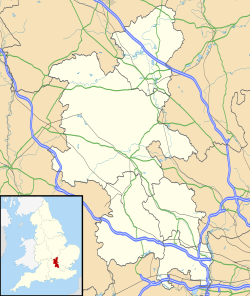History
The village name is Old English in origin, and means 'Padda's fortress'. In the Domesday Book of 1086 the village was recorded as Pateberie. The Manor of Padbury was exchanged, around the time of the Norman Conquest, for the Manor of Iver between Robert Doyley and Robert Clarenbold of the Marsh.
The village had the distinction in Domesday as being one of the few villages in the country still owned by a native rather than a Norman family. It remained in this family (who later took the name 'de Wolverton' after the town of Wolverton) until 1442 when it was sold to All Souls College, Oxford.
During the English Civil War Padbury was the site of a skirmish between the Royalist and Parliamentarian forces. The Royalists won on this occasion, and the burial of eight Parliamentarian soldiers is recorded in the burial register for 2 July 2 1643.
In December 2014 a hoard of 5,251½ silver coins from the late Anglo Saxon period was found in a field at Lenborough near Padbury by an 8-year-old boy among others. It had originally been deposited within a lead container; the coins were sent to the British Museum for evaluation and conservation. [3]
This page is based on this
Wikipedia article Text is available under the
CC BY-SA 4.0 license; additional terms may apply.
Images, videos and audio are available under their respective licenses.


